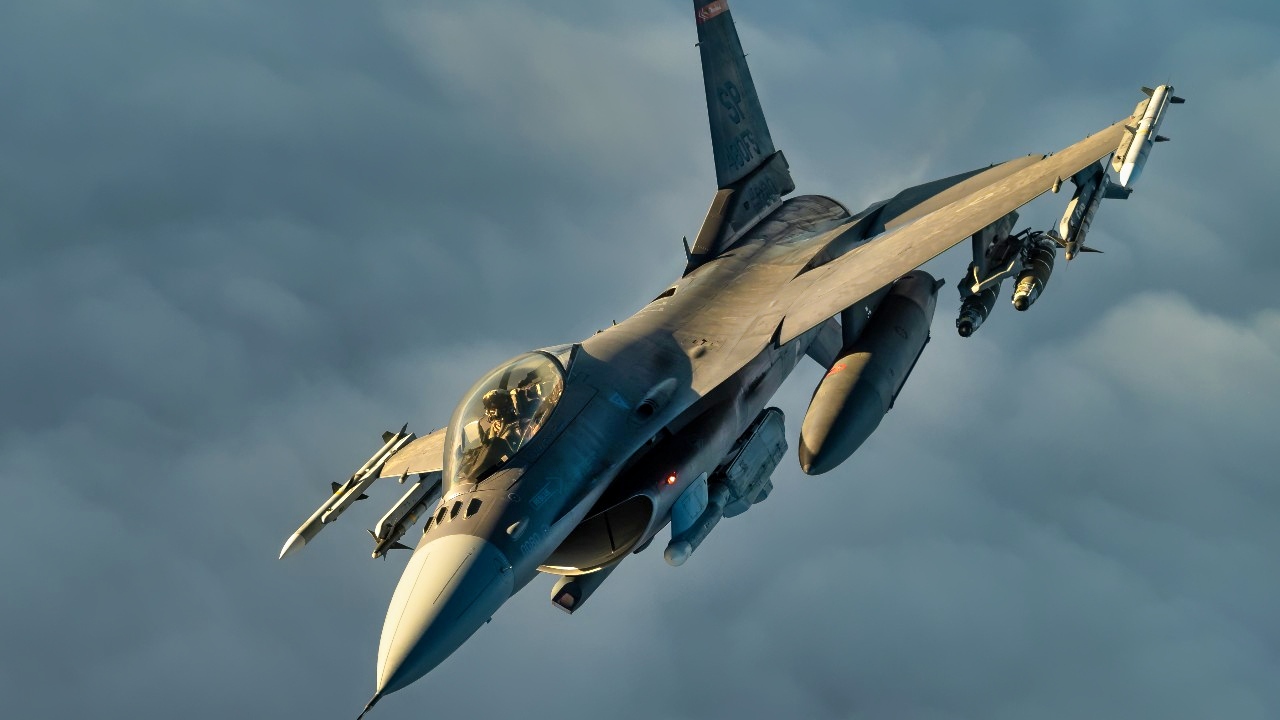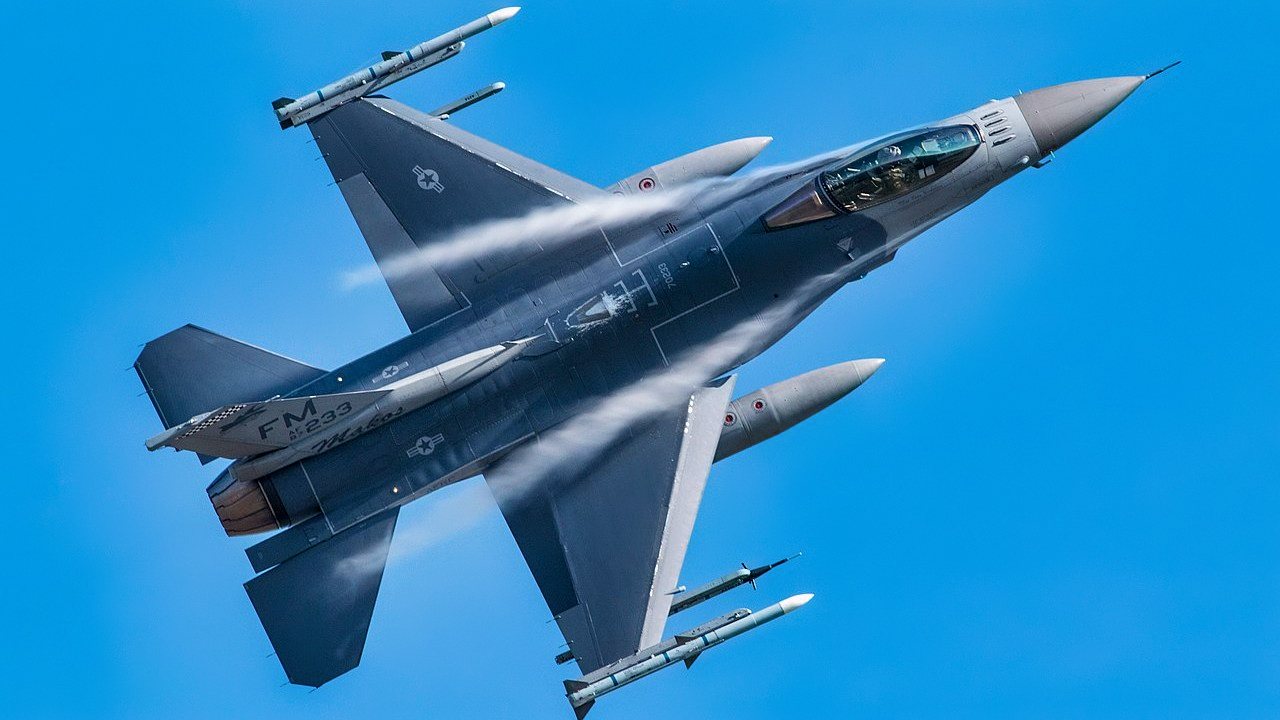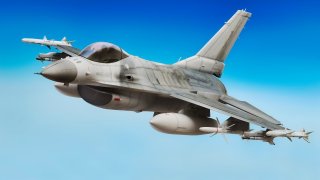Is Argentina Arming for a Second Falklands War with F-16 Fighter Buy?
Argentina’s purchase of 24 pre-owned F-16s from Denmark, a deal approved by the U.S. to prevent Buenos Aires from turning to China for military hardware, has sparked concerns of a potential new Falklands conflict.
Summary and Key Points: Argentina’s purchase of 24 pre-owned F-16s from Denmark, a deal approved by the U.S. to prevent Buenos Aires from turning to China for military hardware, has sparked concerns of a potential new Falklands conflict.

-The 1982 Falklands War saw Argentina seize the British territory briefly before losing it in a humiliating defeat.
-However, despite Argentina’s upgraded air force, its military remains underfunded, and the Falklands are now heavily defended by British forces.
-While saber-rattling may occur, an invasion is unlikely. Any conflict involving U.S.-made F-16s and British F-35Bs could harm Washington's interests and Lockheed Martin’s reputation.
Argentina’s F-16 Purchase Raises Concerns of Another Falklands War
Earlier this summer, as Argentina announced its intention to purchase "pre-owned" American-made F-16 Fighting Falcons from NATO member Denmark, there were concerns that Buenos Aires could be arming up for a new Falklands War.
For those with short memories, it was 42 years ago this past spring that Argentina briefly seized the South Atlantic archipelago that is a British overseas territory. The British have controlled the islands since 1833, but Argentina maintains its claims on the Falklands as a matter of pride. And though a 2013 sovereignty referendum found that almost the entirety of Falkanders voted in favor of remaining a British overseas territory, the sovereignty status is at the core of an ongoing dispute in the UK.
In April 1982, Argentina took the island by force – and subsequently lost a brief but humiliating war to the UK. The conflict earned comparisons to "Queen Victoria's Little Wars" of the 19th century, fought with 20th-century military hardware. The UK may have no longer been the greatest of the world's great powers, and Argentina was far from the second-rate forces that the British military fought around the globe – yet, the UK had an advantage in greater naval capabilities and notably combat aircraft.

The situation could be considerably different as Argentina is now obtaining those aforementioned F-16s, which Washington gave the green light for Buenos Aires to purchase, so as to ensure Argentina doesn't turn to China for military hardware. In a deal valued at $300 million, Denmark will sell the South American nation 24 of its F-16s.
Falklands War 2.0 Would be a Nightmare for the U.S.
The last thing the United States would like to see is two of its partners coming to blows over some islands that few Americans (certainly including Marjorie Taylor Greene) can find on a map. As noted, Washington is eager to ensure that Buenos Aires doesn't look to Beijing for its military hardware.
At the same time, the United States doesn't need to see the Royal Navy's HMS Queen Elizabeth sailing into combat with F-35Bs to attempt to shoot down those F-16s! As Lockheed Martin produces both aircraft, it absolutely wouldn't want to see such a scenario play out!
In the Cold War, selling weapons to both sides in a conflict was good for business. In the 21st-century it would be a disaster. If the F-35s and British air-defense systems destroy the F-16s, it would suggest that the Fighting Falcon is no 21st-century warbird. If even a single F-35 were shot down, Lockheed Martin could see its future sales crash and burn with it!
London is Downplaying the Concerns
Fortunately, cooler heads will prevail. At most, Buenos Aires will likely take a cue from Beijing and rattle sabers that the islands will be returned to mainland control and by force if necessary. That day may come, but not anytime soon.
As the UK Defence Journal reported, "While the acquisition boosts the country’s air force on paper, Argentina is still far from posing a serious threat to the Falkland Islands. A combination of outdated equipment, limited resources, and diplomatic restrictions continues to hold it back."
It will take more than two dozen used F-16s to take the islands, which are now far more heavily defended than they were in the spring of 1982.
"With 1,500 personnel permanently stationed there, combined with Royal Navy patrols and RAF air superiority, the island's defence would likely be robust enough to fend off any amphibious invasion until the arrival of reinforcements," the UK's Express tabloid suggested. "The purchasing of aircraft does little to bolster the ability of ground forces that for years have been underfunded and undertrained."
The Argentinean military relies on equipment from the 1970s and has a navy even more antiquated than its air force. The Falklands are 300 miles off the coast of Argentina, and an amphibious invasion is simply out of the question. The invasion in 1982 was meant to bolster the government of Argentine President Leopoldo Fortunato Galtieri Castelli but instead led to his downfall. It is doubtful Argentina would take such a risk again, even with F-16s in its arsenal.
Author Experience and Expertise: Peter Suciu
Peter Suciu is a Michigan-based writer. He has contributed to more than four dozen magazines, newspapers, and websites with over 3,200 published pieces over a twenty-year career in journalism. He regularly writes about military hardware, firearms history, cybersecurity, politics, and international affairs. Peter is also a Contributing Writer for Forbes and Clearance Jobs. You can follow him on Twitter: @PeterSuciu. You can email the author: [email protected].
Image Credit: Creative Commons and/or Shutterstock.


